UCMJ Articles
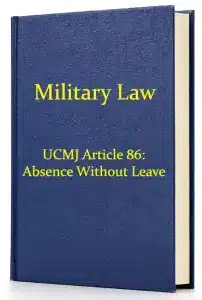
UCMJ Article 86: Absence Without Leave
Absence Without Leave (AWOL) in the military is addressed under Article 86 of the UCMJ. The scope of Article 86 covers any case not addressed in another Article in which a service member is, through the service member’s own fault, not at the place where the member…
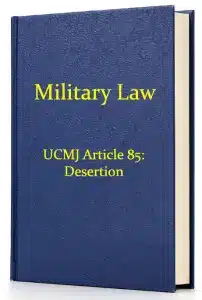
UCMJ Article 85: Desertion
Desertion is completed when the service member leaves their unit, organization, or place of duty without authority and with the intent to remain away permanently. Changing their mind and returning in a timely manner is not a defense.

UCMJ Article 84: Breach of Medical Quarantine
There is a difference between a service member being confined to quarters and being under medical quarantine. A service member who has been ordered into a medical quarantine was ordered to do so due to their possible exposure to a communicable contagion.
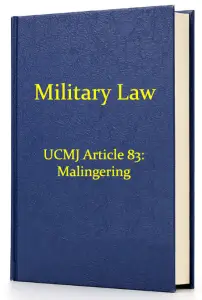
UCMJ Article 83: Malingering
In order to be prosecuted for Malingering, a service member must have purposely committed an act or acts that directly resulted in their not being able to fulfill their military responsibilities or expectations.
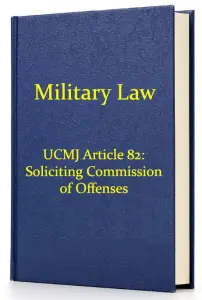
UCMJ Article 82: Soliciting Commission of Offenses
According to the MCM, a service member may be subject to prosecution under Article 82 if they solicit or give advice regarding an offense outlined in the UCMJ.
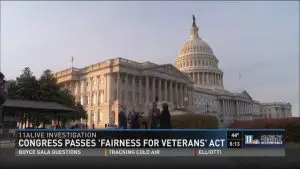
BAH and Travel Fraud
We represented an NCO at a General Court-Martial who was accused of Larceny in violation of Article 121 of the Uniform Code of Military Justice (UCMJ) and making False Official Statements in violation of Article 107 UCMJ, related to alleged BAH fraud.
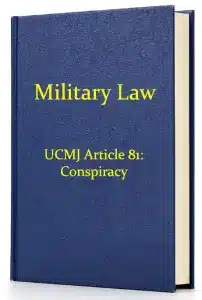
UCMJ Article 81: Conspiracy
The objective of the conspiracy must be a violation of the UCMJ and the act itself must be an incident separate from the agreement. The offense may or may not be criminal, but it must be a result of the agreement between the parties involved.
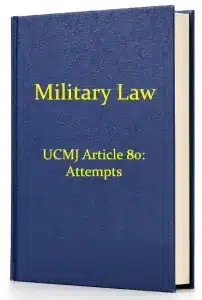
UCMJ Article 80: Attempts
A service member may be charged with a violation of Article 80 if they intentionally attempted to commit a crime that was executed unsuccessfully.
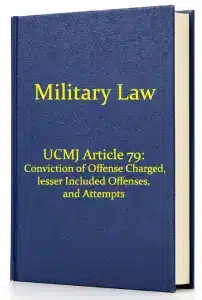
UCMJ Article 79: Conviction of Offense Charged, Lesser Included Offenses, and Attempts.
Conviction of Offense Charged, Lesser Included Offenses, and Attempts- Article 79 of the UCMJ includes an array of charges that may be divided into four.
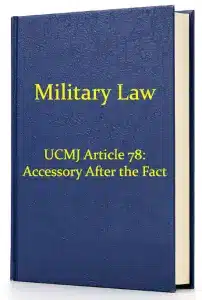
UCMJ Article 78: Accessory After the Fact
The accused must have had knowledge of the crime committed and must have done something to benefit the offender AFTER the crime was committed. The benefits could range from something as simple as offering the offender a “safe place to stay” to something as complex as assisting the principal in destroying evidence.

Questions About Military Drug Testing
While preparing for a court-martial case at Fort Bragg I had the chance to speak with a Forensic Toxicologist who was one of my experts for the case. The Toxicologist works as a civilian for the military. He has spent years working with military drug testing facilities and is familiar with their internal processes and the studies that evaluate military drug testing procedures.
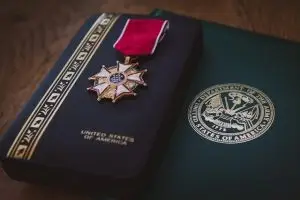
Is a “Guilty” finding at NJP an actual “Conviction?”
Not a Criminal Proceeding. A guilty finding at a non-judicial punishment should never be considered a ‘conviction’ because it was never meant to be a


